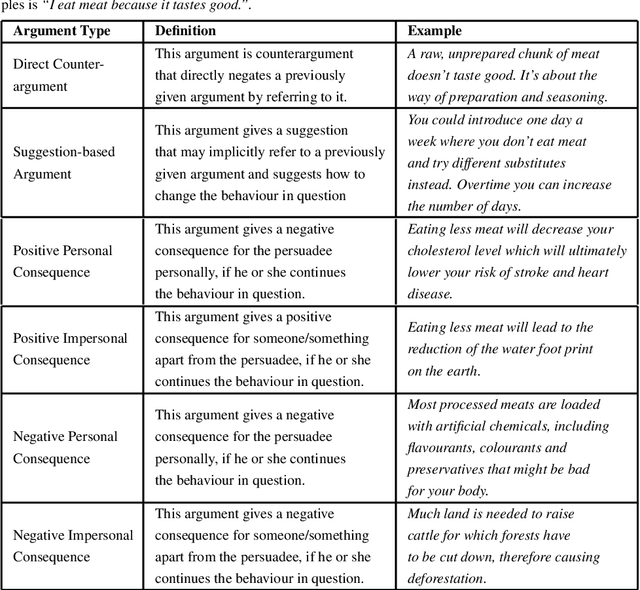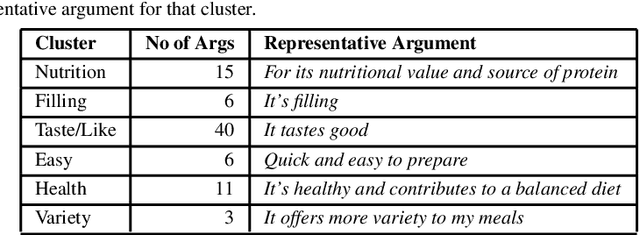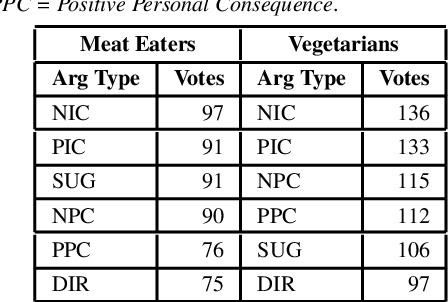Lisa A. Chalaguine
Impact of Argument Type and Concerns in Argumentation with a Chatbot
May 02, 2019



Abstract:Conversational agents, also known as chatbots, are versatile tools that have the potential of being used in dialogical argumentation. They could possibly be deployed in tasks such as persuasion for behaviour change (e.g. persuading people to eat more fruit, to take regular exercise, etc.) However, to achieve this, there is a need to develop methods for acquiring appropriate arguments and counterargument that reflect both sides of the discussion. For instance, to persuade someone to do regular exercise, the chatbot needs to know counterarguments that the user might have for not doing exercise. To address this need, we present methods for acquiring arguments and counterarguments, and importantly, meta-level information that can be useful for deciding when arguments can be used during an argumentation dialogue. We evaluate these methods in studies with participants and show how harnessing these methods in a chatbot can make it more persuasive.
Argument Harvesting Using Chatbots
May 11, 2018



Abstract:Much research in computational argumentation assumes that arguments and counterarguments can be obtained in some way. Yet, to improve and apply models of argument, we need methods for acquiring them. Current approaches include argument mining from text, hand coding of arguments by researchers, or generating arguments from knowledge bases. In this paper, we propose a new approach, which we call argument harvesting, that uses a chatbot to enter into a dialogue with a participant to get arguments and counterarguments from him or her. Because it is automated, the chatbot can be used repeatedly in many dialogues, and thereby it can generate a large corpus. We describe the architecture of the chatbot, provide methods for managing a corpus of arguments and counterarguments, and an evaluation of our approach in a case study concerning attitudes of women to participation in sport.
 Add to Chrome
Add to Chrome Add to Firefox
Add to Firefox Add to Edge
Add to Edge